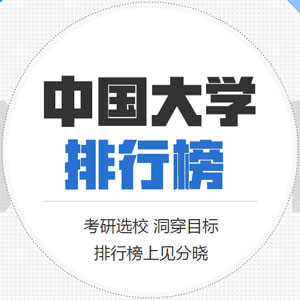2018考研英语(二)真题阅读Text3文章来源于2017年6月18号的 The Guardian《卫报》,原标题是The Guardian view on digital giants: they farm us for the data。想知道2018真题题源的同学看过来!让我们一起来揭开真题神秘的面纱,我们用的考题就是这篇文章的后半部分!考研真题阅读text3文章来源网站:https://www.theguardian.com/commentisfree/2017/jun/18/the-guardian-view-
on-digital-giants-they-farm-us-for-the-data
The Guardian view on digital giants: they farm us for the data
We are neither the customers nor even the product of companies like Google, but we turn our lives into the knowledge that they sell
An astonishing project is under way to build a “digital time machine” that will show us in fine detail the lives of ordinary Venetians across a thousand years of history. It is made possible by the persistence of the republic’s bureaucracy, which, when Napoleon extinguished the Republic of Venice in 1797, left behind 80km of shelving full of records of births, deaths, trades, building, land ownership, private letters, ambassadors’ reports and even medical information. All this is now to be digitised, cross-referenced, and analysed, and all its secrets laid bare to provide a picture in unprecedented richness and detail of the lives of individuals and the development of society over many centuries. Obviously, this is wonderful for historians and indeed anybody with an imagination alive today. One wonders, though, what the Venetians would have made of it, had they known their lives and letters would be so carefully anatomised after their deaths.
Far more is known about us now, though, and in real time. The data in the Venetian archives was unmatched in medieval and even early modern Europe, but it is only legend and scraps of hearsay compared to the knowledge of us accumulated by the giants of the digital economy – Google, Facebook, and Amazon – who all in various ways use the data harvested from their users to make billions of dollars, from advertising or from direct selling, or from some combination of both. Their knowledge of our intimate lives doesn’t wait two centuries or more until we’re dead. They get it live, in real time. Sometimes they know our minds before we know them ourselves. It’s a situation quite unprecedented in history.
The European commission may be about to levy the biggest fine in its history on Google for anti-competitive behaviour – potentially more than €1bn. This case, five years in the making, is the latest, and perhaps the largest, battle in the struggle to establish democratic control over the giants of the digital economy. In the US, the government has been captured by the corporations, and in China universal surveillance is openly converted to a means of government control. Only the EU attempts to balance these powers to the benefit of the ordinary citizen.
The power and ambition of these companies is astonishing – Amazon has just announced the purchase of the upmarket grocery chain Whole Foods for $13.5bn, but two years ago Facebook paid even more than that to acquire the WhatsApp messaging service, which doesn’t have any physical product at all. What WhatsApp offered Facebook was an intricate and finely detailed tracery of its users’ friendships and social lives. Facebook promised the European commission then that it would not link phone numbers to Facebook identities, but it broke the promise almost as soon as the deal went through. Even without knowing what was in the messages, the knowledge of who sent them and to whom was enormously revealing and still could be. What political journalist, what party whip, would not want to know the makeup of the WhatsApp groups in which Theresa May’s enemies are currently plotting? It may be that the value to Amazon of Whole Foods is not so much the 460 shops it owns, or the distribution network, but the records of which customers have purchased what.
Competition law appears to be the only way to address these imbalances of power. But it is clumsy. For one thing, it is very slow compared to the pace of change within the digital economy. By the time a problem has been addressed and remedied it may have vanished in the marketplace, to be replaced by new abuses of power. But there is a deeper conceptual problem, too. Competition law as presently interpreted deals with financial disadvantage to consumers and this is not obvious when the users of these services don’t pay for them. The users of their services are not their customers. That would be the people who buy advertising from them – and Facebook and Google operate a virtual duopoly in digital advertising to the detriment of all other media and entertainment companies.
The product they’re selling is data, and we, the users, convert our lives to data for the benefit of the digital giants. Just as some ants farm aphids for the honeydew that oozes from them when they feed, so Google farms us for the data that our digital lives exude. Ants keep predatory insects away from where their aphids feed; Gmail keeps the spammers out of our inboxes. It doesn’t feel like a human or democratic relationship, even if both sides benefit.
https://www.theguardian.com/commentisfree/2017/jun/18/the-guardian-view-on-digital-giants-they-farm-us-for-the-data
① 凡本站注明“稿件来源:教育在线”的所有文字、图片和音视频稿件,版权均属本网所有,任何媒体、网站或个人未经本网协议授权不得转载、链接、转贴或以其他方式复制发表。已经本站协议授权的媒体、网站,在下载使用时必须注明“稿件来源:教育在线”,违者本站将依法追究责任。
② 本站注明稿件来源为其他媒体的文/图等稿件均为转载稿,本站转载出于非商业性的教育和科研之目的,并不意味着赞同其观点或证实其内容的真实性。如转载稿涉及版权等问题,请作者在两周内速来电或来函联系。






 教育在线
教育在线



















